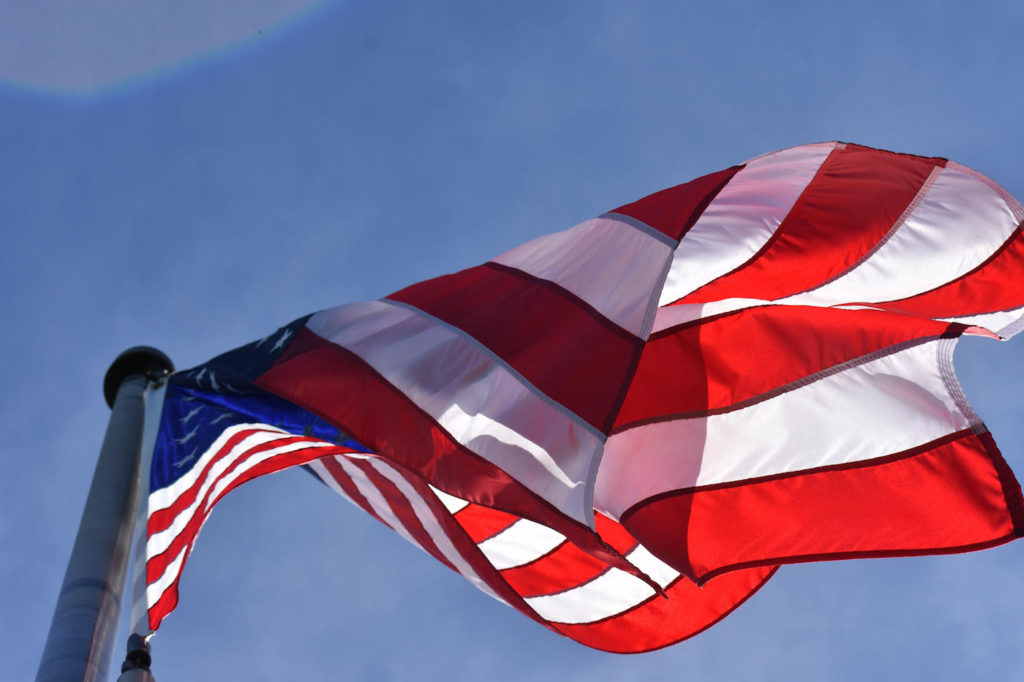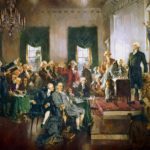Ten years ago, Public Discourse was launched with a subtitle—or you may call it a slogan or tagline—proclaiming that the matters taken up here would concern “Ethics, Law, and the Common Good.” Some time in the intervening decade, that subtitle was dropped in successive redesigns of PD’s website. As the journal gained a wide readership, established a reputation for probing and thoughtful essays on, well, ethics, law, and the common good, and even came to be cited by scholars and writers of legal briefs, it was no longer necessary to include that tagline on the masthead explaining what Public Discourse is about. But it still captures the essence of our undertaking.
At the heart of the common good is a concern for human dignity and human flourishing. As my fellow contributing editor Nathaniel Peters explains, that means the community must not intentionally abandon or sacrifice, in the name of the common good, the wellbeing of any individuals whose good it comprehends. That includes the unborn from the moment of conception, the aged and infirm persons whom some would write off as inconvenient, the women exploited by surrogacy arrangements, and gender-confused young people. It includes men and women of every race and creed, the innocent and the guilty, the citizen and the immigrant.
As I’ve noted elsewhere, political communities are constituted by discourse and debate—the giving and weighing, rejection and acceptance of reasons for the laws, policies, and judgments promulgated by public authority. Humans are the rational animals, and any just society must rely heavily on the persuasion that makes civic friends out of persons who are otherwise merely neighbors in the bare sense of proximity to one another. We are fallen and flawed creatures, of course, and our devotion to what is common to us will naturally be imperfect and incomplete, our capacity to persuade and be persuaded is necessarily limited, and perfect consensus and harmony will ever elude our grasp. But the constant striving, in good faith and with good will, even through conflict and strife, for as much justice as we can attain, is what makes for a vibrant polity.
In the United States, the highest embodiment of the rule of law is the Constitution. It calls a government into being, gives it offices and powers, knits it together with existing and future state governments, and limits its powers both structurally and legally for the sake of freedom and the flourishing of individuals, families, and communities of all kinds. Under its shelter, a free and dynamic nation has flourished for 229 years.
Start your day with Public Discourse
Sign up and get our daily essays sent straight to your inbox.But how healthy is our legal and political order? Are its founding principles sound in their own right? Is its structure truly intact, under the appearance of continuity in form since 1789? Does it function as it should? Are the fruits of its work wholesome? Do we still know, and care to preserve, what it means to be governed by law and not by men? Are our public policies guided by its high ideals, or are they nothing more than the outcome of struggles between warring parties and interests seeking power? Has a dysfunctional extremism afflicted our politics in recent years, or are we witnessing the ordinary ups and downs of American electoral politics, merely magnified by 24/7 news cycles and social media?
The Way of Public Discourse
These questions and more have been addressed in the pages of Public Discourse over the last ten years. Here we have featured numerous essays on the handiwork of the American founders, on the shape and substance of liberalism, of progressivism, and of conservatism versus libertarianism. Our abiding concern for the rule of law has produced essays on the natural law, on the meaning of an originalist approach to interpreting the Constitution, and on the problem of judicial supremacy.
In an era in which religious liberty has been increasingly threatened at home and abroad, our authors have explored the basis, the meaning, and the means of protecting this fundamental human right. They have discussed the meaning of patriotism, the powers of the presidency, the ethics of voting, and the contributions (for good or ill) of political parties to the wellbeing of the nation. They have contemplated the enduring scars left on our body politic by slavery, racism, and the scourge of abortion. And they have grappled with the political, legal, and moral dimensions brought on by the rapid onset of same-sex marriage and the transgender movement.
In all of these controversies, Public Discourse has, to be sure, been a right-of-center voice, sympathetic to social conservatism, to orthodoxy in the great religious traditions of the West, and to the American tradition of constitutional republicanism. And our writers—who each speak for themselves alone and often disagree with each other—have at times engaged in the sharp give-and-take of impassioned argument. But untempered polemic and ad hominem takedown are not welcome at Public Discourse. And mere partisanship and ideology, those shortcuts for actual thinking, are not for these pages, and never will be.
If it is “choosing sides” in today’s public square to defend the dignity of the human person, the integrity of the family, the politics of free self-government, the value of the great tradition of intellectual inquiry, and the virtues that sustain a robust civil society, then Public Discourse has chosen a side. So be it. But such a conclusion is itself a sad commentary on the drift of our political culture into ideological categories of thinking. Exploding such categories, and delving more deeply and thoughtfully into the fundamental questions our society faces, has always been the strong suit of Public Discourse.
The Years to Come
What lies in store for the next ten years in these pages? As Donald Rumsfeld famously said, the future holds “unknown unknowns” as well as those things we can reasonably anticipate. But we expect that the theory and practice of liberalism in western political life, and in American politics in particular, will continue to be a matter of pressing concern. The foundations of a free society are its moral commitments. Whence come those commitments—from a radical Enlightenment that severed its ties to tradition, or from that far older tradition that wove together the strands of classical philosophy and biblical religion? A conversation on these deepest questions of political philosophy is not a matter of mere theory.
What is the appropriate perspective on the populist moment taking place in both of America’s great political parties? Is the American constitutional order suffering from a general crisis of legitimacy? Is our political system now in perpetual “campaign mode”? Can it govern by reason and persuasion, or is democratic politics in the West now simply a matter of plebiscitary force majeur? What are the preconditions conducive to the broad consensus that makes for legitimacy, with grace in defeat and magnanimity in victory?
Can we restore the rule of law and reasoned judgment in our courts? Is the American judiciary the friend or foe of constitutional government? Even among originalists, there is deep division today between the advocates of judicial restraint and the champions of judicial engagement. Which of these competing schools of thought has the better account of constitutional meaning? Do the intensity and viciousness of our current political struggles over Supreme Court appointments suggest an unhealthy fixation on judicial resolution of our political differences—and a dangerous expansion of judicial power in the American republic?
In political theory, in the law’s practical applications, and in our political culture itself, the question of rights is not going away any time soon. Whether the claim is on behalf of religious conscience, or the recognition of marital status or a self-proclaimed identity, or the simple right to speak and be heard, the questions of who has rights, on what basis, of what kind, against whom, for what, and with what limits will continue to be right in front of us, in our political contests, our legal controversies, our classrooms, and our social interactions.
What sort of community do we live in? Are our cities—or, for that matter, our suburbs and rural towns—fit for human habitation? What knits citizens together into an authentic community? How open is that community to the needs and desires of the immigrant? What are the conditions of appropriate assimilation into the American experiment? What are the right policy responses to technological change as it affects the family, education, and the marketplace? What can policymakers do to aid the formation of successful families? Do current demographic trends represent an inexorable future? These questions concern the “known knowns” and the “known unknowns.” But what is just over the horizon that no one is thinking about now? Whatever may come, we will need a public mind honed by reasoned argument.
For ten years, Public Discourse has drawn on the insights of academics and scholars, political and legal advocates, and men and women of letters to offer the reading public thought-provoking reflections on the timeliest issues and the most timeless dilemmas of our public life. As a member of PD’s new board of contributing editors, I look forward to many more years of stimulating thoughts on questions of ethics, law, and the common good.













